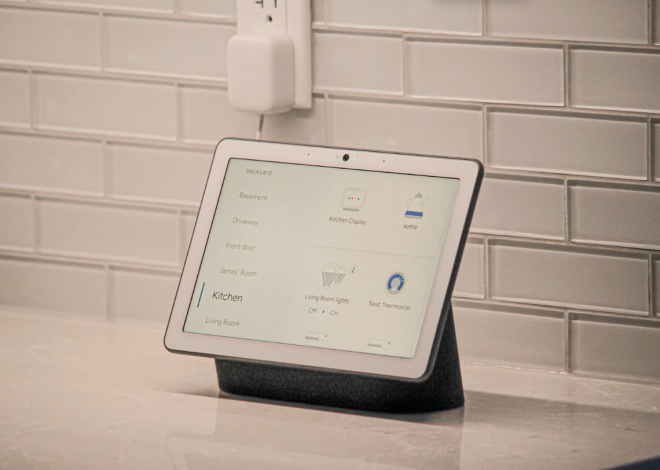8 Conveyancing Tips to Help You Buy Your House More Quickly
Buying a home is exciting, stressful, frustrating, and extremely rewarding. It can be a complex, drawn-out process that’s enough to test anyone’s patience and often has more delays than a long-awaited stadium construction project. On top of that, prospective homeowners are buried beneath piles of legal paperwork before being thrown from the frying pan into the fire under an obscene amount of pressure to become legal experts in a matter of weeks. But, with the help of a good conveyancer, buyers no longer need to worry about all of the legal heavy lifting, and will have more time to pick out the furniture.
What is Conveyancing?
Conveyancing isn’t as complicated as you might think. It’s the legal process that encompasses the transfer of ownership of one or more properties from one party to another.
A conveyancer must be licensed, and is either a lawyer or solicitor, or simply a licensed conveyancer. Their job entails collaborating with local authorities and other institutions to thoroughly search properties to root out issues that could affect the conveyancing process, for instance, inconsistencies in property boundaries, local development plans, and whether the parties have ever declared bankruptcy. They’re also in charge of reviewing contracts, deeds, and other important legal documents, as well as managing the transfer of funds, registering ownership with the land registry. On top of all this, they support their clients with legal advice around remortgaging, buying and selling.
Tips
If this is your first time buying a house or using a conveyancer, you might feel like you’re adrift in a process that is totally out of your control, but that simply isn’t the case. Here are a few straightforward tips that we wish we knew the first time around.
Utilise Estate Agents
Inexperienced buyers or sellers might be tempted to forgo the middleman and deal directly with one another rather than use an estate agent, but those who do quickly realise the amount of work it entails. Especially for buyers, who aren’t specifically owed a service by estate agents and therefore are not charged, while they are still able to benefit from their consultative advice and years of experience with the process. Sellers, meanwhile, don’t have to worry about marketing the house, managing viewings, or overseeing the negotiation process.
Choose the Right Conveyancer
For any first-time buyer, the process of buying a home is both exciting and nerve-wracking. Having a conveyancer you can trust will take some of the weight off your shoulders and ensure the process runs as smoothly as possible while maintaining momentum.
You also don’t want to run the risk of encountering conveyancing negligence, which happens when a conveyancer does not perform their duties to the expected professional standard. For example, a conveyancer might neglect their duty to conduct essential property searches that could reveal huge flaws and result in massive delays, or they could mismanage their workload and, as a result, miss critical legal deadlines in the conveyancing process, which could also mean massive delays or even financial penalties for you. It isn’t worth the risk – find a good conveyancer whom you can rely on and avoid the need to hire conveyancing negligence solicitors like Been Let Down.
Find a Conveyancer as Soon as You Can
You should find a suitable conveyancer early in the buying process – definitely before making your first offer. You will need them to complete the necessary anti-money laundering checks before they kickstart the rest of the process, which will then move the rest of their checks forward as well, ensuring that you’re off to the best possible start.
Organise Your Paperwork
Before you reach any checkpoints in the house-buying process, it’s absolutely paramount that you have your paperwork in order. First of all, you’ll need to provide identification documents that prove your identity and address. Following that, you’ll need to provide evidence: show your proof of funds and where they have come from. There is quite a high degree of flexibility here, for instance, using bank statements, a mortgage agreement in principle, inheritance, a gift, or selling another property.
Swiftly Secure Your Mortgage
Ahead of any house hunting whatsoever (even window shopping, if you’re remarkably disciplined), you must research and select your lender and mortgage type. If you have a mortgage agreement in principle, you’re evidencing your credibility as a buyer.
A mortgage agreement in principle is your lender’s estimate of what they may be willing to lend you for a mortgage. It isn’t a formal, legally binding agreement, but it shows you’re a serious buyer and often includes a credit check. A mortgage in principle is usually valid for up to 90 days.
Arrange Your Property Survey Promptly
As soon as your offer is accepted, book in your property survey with your conveyancer and surveyor. The surveyor will provide a thorough inspection of the property, noting its condition, and identifying the need for any repairs, or highlighting integral structural issues. Once the survey is complete, consult with your conveyancer to come up with a plan moving forward.
Organise Your Finances
Aside from the value of the house, there are also lots of hidden costs than accompany buying a home. Consider the costs of surveying, a broker fee (if you used a mortgage broker), conveyancing fees, and stamp duty, if you aren’t a first-time buyer or purchasing a home worth over £400,000.
Stay Engaged in the Process
Naturally, your conveyancer will keep you up-to-date when you reach significant milestones in the conveyancing process. It’s better if you’re on top of what is happening and what is required of you, either at the moment or in the near future. During the process, there are countless details and checks that each require both your attention and action in order to keep everything moving. If you let the process slide, then you could not only cause unnecessary delay but you could even end up losing the house. It just isn’t worth it.
In Conclusion
Conveyancing isn’t often a major focus before buying or selling, but once the deal is over the line, all parties involved are aware of the countless headaches and legal landmines they avoided thanks to their conveyancer. For most, this process is often overlooked, but that doesn’t make it any less vital. That’s why you need to set yourself up for success. Buying a house can often be a months-long endeavour, with multiple delays along the way that enrage and frustrate, when in the end, all parties want the same thing. So take stock of elements that you can control; make sure that your conveyancing process is as breezy as possible, and it could take weeks off your purchase or sale.


